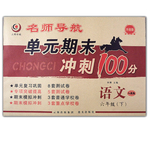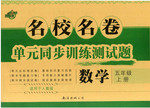题目内容
Men will ________ all the natural resources if they continue consuming them like that.
A. run out B. wipe out C. drop out D. hold out
B

 名师导航单元期末冲刺100分系列答案
名师导航单元期末冲刺100分系列答案 名校名卷单元同步训练测试题系列答案
名校名卷单元同步训练测试题系列答案
Decision-making under Stress
A new review based on a research shows that acute stress affects the way the brain considers the advantages and disadvantages, causing it to focus on pleasure and ignore the possible negative (负面的) consequences of a decision.
The research suggests that stress may change the way people make choices in predictable ways.
“Stress affects how people learn,” says Professor Mara Mather. “People learn better about positive than negative outcomes under stress.”
For example, two recent studies looked at how people learned to connect images(影像) with either rewards or punishments. In one experiment, some of the participants were first stressed by having to give a speech and do difficult math problems in front of an audience; in the other, some were stressed by having to keep their hands in ice water. In both cases, the stressed participants remembered the rewarded material more accurately and the punished material less accurately than those who hadn’t gone through the stress.
This phenomenon is likely not surprising to anyone who has tried to resist eating cookies or smoking a cigarette while under stress –at those moments, only the pleasure associated with such activities comes to mind. But the findings further suggest that stress may bring about a double effect. Not only are rewarding experiences remembered better, but negative consequences are also less easily recalled.
The research also found that stress appears to affect decision-making differently in men and women. While both men and women tend to focus on rewards and less on consequences under stress, their responses to risk turn out to be different.
Men who had been stressed by the cold-water task tended to take more risks in the experiment while women responded in the opposite way. In stressful situations in which risk-taking can pay off big, men may tend to do better, when caution weighs more, however, women will win.
This tendency to slow down and become more cautious when decisions are risky might also help explain why women are less likely to become addicted than men: they may more often avoid making the risky choices that eventually harden into addiction.
【小题1】We can learn from the passage that people under pressure tend to ______.
| A.keep rewards better in their memory |
| B.recall consequences more effortlessly |
| C.make risky decisions more frequently |
| D.learn a subject more effectively |
| A.ways of making choices | B.preference for pleasure |
| C.tolerance of punishments | D.responses to suggestions |
| A.women find it easier to fall into certain habits |
| B.men have a greater tendency to slow down |
| C.women focus more on outcomes |
| D.men are more likely to take risks |
The Winter Olympics proved no match for television's gold-medal winner, "American Idol". Fox's unbelievable successful contest crashed the Olympics in head-to-head competition on Tuesday night, 27 million viewers to 16.1 million, according to Nielsen Media Research.
The Olympics recovered a bit after "Idol" went off the air, but its overall audience of 18.6 million was the least-watched winter Olympics telecast since Nagano's closing ceremonies in 1998, Nielsen said.
Since its opening on Friday, the Turin games have been running well below the 2002 Salt Lake City games in viewership interest. Much of that was expected, but Tuesday's rating was the first alarming sign for NBC that increased TV competition has taken a toll.
"The competition from 'Idol' is heavier than the Olympics has ever seen," said NBC Sports spokeswoman Alana Russo.
It doesn't figure to get any easier, with "Idol" and ABC's "Lost" on the air Wednesday. CBS' "Survivor" and "CSI: Crime Scene Investigation" offer more competition on Thursday.
Even figure skating, the most popular winter Olympics sport for viewers, didn't help much on Tuesday. NBC filled about two-thirds of the hour during which it competed with "American Idol" with tape of the men's figure-skating competition.
Through five nights of Olympics coverage, NBC's average prime time rating is 12.7 ( a rating point represents 1,102, 000 households, or 1 percent of the nation's estimated 110.2 million TV homes). NBC said before the games started that it had promised its advertisers a rating of between 12 and 14. If it slips below that, NBC will have to make it up to advertisers with free commercial time.
" ‘American Idol' is clearly a phenomenon," said Randy Falco, president of the NBC Universal Television Group. "But we expected it and are tracking fight where we planned to be at this point." Between NBC and its networks, about 65 percent of the nation's television homes have tuned in at least some of the games.
1.How many viewers watched the Winter Olympics on Tuesday night?
|
A.110.2 million |
B.12.7 million |
|
C.27million |
D.16.1million |
2.What did NBC do on Tuesday night to attract more viewers?
|
A.To ask the "idol" to go off the air. |
|
B.To play the tapes of men's figure skating. |
|
C.To add "Survivor" to its program. |
|
D.To do more advertising. |
3.If the rating slips below 12, NBC will .
|
A.do more advertising for nothing |
|
B.stop running normally |
|
C.never cover the Olympics |
|
D.pay extra money for advertisers |
4.What does the underlined word "taken a toll" mean?
|
A.paid off. |
B.caused loss. |
C.broken out. |
D.picked up. |
Nobel, who was born in Stockholm, is a great scientist famous for his dangerous experiments.
Nobel studied in the USA and then Russia between 1850 and 1859. After his return, he started researching into bombs. As is known, bomb is dangerous to life, but Nobel was working under that condition. Once a big explosion in his lab completely destroyed the lab and caused some deaths. After that he had to experiment on a boat in a lake. He received criticism and satire(讽刺), but he proceeded with the work rather than losing heart. From 1860s to 1880s, Nobel made many achievements and his inventions were first used in building roads and digging tunnels. Most of the bombs were safer and more possible to be controlled. Even at the end of the 20th century, we still used his methods.
Nobel had many patents in Britain and other European countries. He was quick to see industrial openings(机会) for his scientific inventions and built up over 80 companies in 20 different countries. Indeed his greatness lay in his outstanding ability to combine the qualities of an original scientist with those of a forwardlooking industrialist.
But Nobel’s main concern was never with making money or even with making scientific discoveries. Seldom happy, he was always searching for a meaning to life, and from his youth, he had taken a serious interest in literature and philosophy. His greatest wish, however, was to see an end to wars, and thus peace between nations, and he spent much time and money working for this cause. To follow his will, a fund was set up to encourage people to make great progress in physics, chemistry, physiology(生理学), medicine, literature and peace. That’s the Nobel Prize which means great honor to a scientist.
1.Through his early experimental work, it is evident that ________.
|
A.Nobel was a man of strong will |
|
B.Nobel was a man of gift |
|
C.Nobel seldom got on well with his work |
|
D.Nobel had his heart in his work |
2.In fact, his inventions were first used in ________.
|
A.a war to kill and injure his fellow men |
B.building roads |
|
C.digging tunnels |
D.both B and C |
3.Based on the passage, Nobel, as a scientist, ________.
|
A.took a single interest in science |
|
B.took a serious interest in money |
|
C.took no interest in literature |
|
D.took a serious interest in literature as well as in science |
4.Which of the following statements is true according to the passage?
|
A.His wonderful will surely provided other scientists with a large sum of money. |
|
B.In leaving behind a wellmeant will, Nobel succeeded in setting up a permanent monument for his interests and ideals. |
|
C.Nobel made a glorious will so that he might be remembered and respected after his death. |
|
D.Nobel expressed his wish in his will that a monument should be put up in memory of him. |